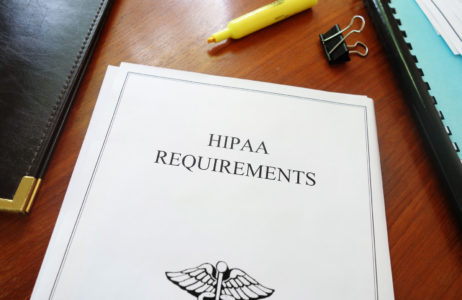Is a life insurance policy public record?
FREE Life Insurance Comparison
Secured with SHA-256 Encryption
Compare quotes from the top life insurance companies and save!
- The “Public Record” is considered to be general information that will bring harm to an individual beyond that which he or she has already caused themselves
- Sensitive information such as medical history, financial information and the like is treated as private data under the HIPAA laws
- When an individual applies for life insurance, it is the duty of the agent or broker and the life insurance company to safeguard sensitive information
- It is the duty of the entire organization from the agent to all home office personnel to safeguard the sensitive information to protect the individual from harm
We often hear about information that is in the “public record.” What exactly is meant by the public record?
A public record is that information that is kept by a state, a municipality, or the Federal Government about people and property.
The general public is allowed to search and retrieve certain things, and there are other types of information that they are not allowed to have access to.
Types of information that is in the public record are items and pieces of information that add to the public good as far as everyone knowing about it. For example, if your neighbor is a child sex offender, it would be good for you to know that, and that information is available in the public record.
In the public record, you will find information about an individual’s birthday, past addresses, records of marriage and divorce, voter registration records, bankruptcy records, and death records.
This type of information is made available to the public for the purpose of the “common good” of the country so as to make available records that might adversely affect the population.
Learn more about life insurance below and make sure to use our free comparison tool above! Just enter your zip code above and start comparing
Is there information about us that is protected from being in the public record?

Information that is private and is not available to the public starts with a person’s name when that name is connected to other information.
A good example of this principle is information that contains health and medical information. This information is protected under the Health Insurance Portability and Accountability Act, or HIPAA.
Other information in this category would include a person’s Social Security Number, a Driver’s License number, tax records, banking information, and credit card information.
It boils down to the question of vulnerability. The sensitive information about our personal health and financial records could do us great damage if that information were to fall into the wrong hands.
And we all know how difficult it can be if someone hacks our financial and banking records so as to steal from us at will. Consequently, that is protected information and is not available to the general public.
Life Insurance Information is Not Allowed in The Public Record

When you fill out the application for life insurance, you will be required to sign a HIPAA form that states that the information that is being submitted is private and cannot be dispersed in the public domain without severe penalty.
That means that you will be protected from the malicious use of your private information.
All of the information that a life insurance requires from an applicant is certainly very personal, and if it were to be available to the public, that would make you a prime target for extortion, blackmail, and outright theft.
The information that a life insurance company has to have to pass judgment on a person’s insurability is very comprehensive and is not information that you would want the general public to know.
Not only is all of your health history required, but so is your earnings and banking information.
As a result of the sensitivity of the information that a life insurance applicant is required to produce, that information is protected under the privacy act and HIPAA.
Without that protection, the result would be mayhem, and particularly so in our modern digital age.
The Process of Keeping Sensitive Information Private

The vast amount of people who potentially have access to the private records of the average insurance applicant is immense.
Starting with the agent or broker who collects the information, and then makes copies of the file to a lot of employees in the home office of the insurance company, these records are very vulnerable unless protective steps are taken.
Life insurance agents and brokers are required to understand the HIPAA laws and prove their agreement and compliance by taking “anti-money laundering” updates on a regular basis.
The consequences of letting such information out can result if heavy fines and possible legal remedies.
When the information on a life insurance application reaches the home office underwriting department, the requirement of strict privacy applies there as well.
Clerks, data entry personnel, underwriting staff, and everyone else who has access to such information is a potential weak link.
With the aspect of so many people having access to the private records of people, a great deal of care and planning is necessary so that not one bit of this information leaks out.
If information like this does get out, it is usually by employee error that it happens, even though safeguards are in place.
Employees are required to be educated in the details of the privacy laws and to agree on the basic principle of privacy by taking an exam and signing off on compliance.
Continued training and frequent updates of the privacy laws are required of both the agents and brokers and the personnel of the home offices. There is too much as stake to not have the focus of privacy in front of all these people all of the time.
The best way to ensure that everyone is on the same page is to constantly keep the issue out in front while emphasizing the importance of the issue.
If compliance with privacy rules are mentioned one or two times in meetings and general conversation, there is not going to be much urgency to comply.
However, if the issue of HIPAA compliance is stressed very strongly in many meetings and educational requirements, the institution is more likely to have a better compliance rate.
In Conclusion
Life insurance information that is required on the application is not a part of public records as that information falls under the HIPAA rules and other privacy legislation.
Information such as detailed health and medical data, banking and financial information and other items such as background and history data are not available publically. It is not a part of public records as that information falls under the HIPAA rules and other privacy legislation
Information such as detailed health and medical data, banking and financial information and other items such as background and history data are not available publically.
Without such safeguards, criminals and con-artists would be able to have a field day at a time which might be a victim’s most vulnerable moment.
The privacy laws are in place for the purpose of protecting sensitive information so it cannot be used to take advantage of people.
Don’t miss out on our free comparison tool below! Just enter your zip code and start comparing rates now!
Start Saving on Life Insurance!
Enter your zip code below to compare rates from the top companies in your area
Secured with SHA-256 Encryption



